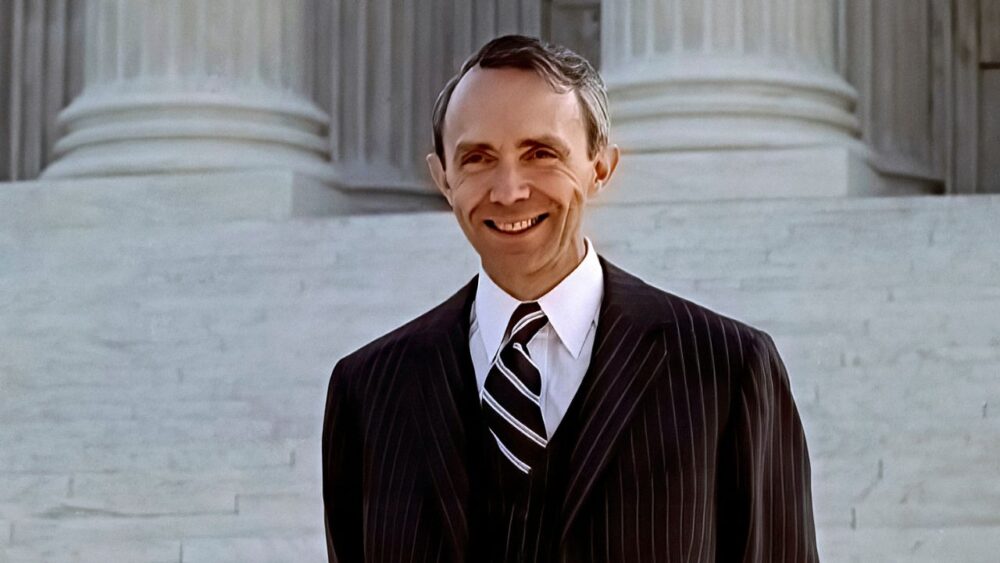Retired Supreme Court Justice David H. Souter, a New Hampshire Republican whose 19-year tenure saw him become a steadfast liberal vote on issues like abortion and church-state separation, died Thursday at his home in New Hampshire at age 85.
Appointed by President George H.W. Bush in 1990, Souter retired in June 2009, allowing President Barack Obama to nominate Sonia Sotomayor, the Court’s first Latina justice. Souter, a reserved bachelor, was known for his intellectual rigor and simple lifestyle—often eating yogurt and an apple at his desk for lunch while shunning Washington’s social scene.
“Justice David Souter served our Court with great distinction for nearly twenty years. He brought uncommon wisdom and kindness to a lifetime of public service,” Chief Justice John G. Roberts said in a statement. “After retiring to his beloved New Hampshire in 2009, he continued to render significant service to our branch by sitting regularly on the Court of Appeals for the First Circuit for more than a decade. He will be greatly missed.”
Born September 17, 1939, in Melrose, Massachusetts, Souter graduated from Harvard College and Harvard Law School with a master’s degree from Oxford as a Rhodes scholar. He served as New Hampshire’s attorney general from 1976 to 1978, then as a state trial and supreme court judge before his brief stint on the 1st U.S. Circuit Court of Appeals in 1990. That July, Bush nominated him to replace Justice William Brennan, praising his “extraordinarily bright” mind and fairness.
Lacking a clear ideological record, Souter was dubbed a “stealth nominee.” Liberal groups, fearing he might overturn Roe v. Wade, were wary.
“I tremble for this country if you confirm David Souter,” said Molly Yard, then-president of the National Organization for Women. Yet, confirmed 90-9 by the Senate, Souter soon defied expectations. In 1992’s Planned Parenthood v. Casey, he joined Justices Anthony Kennedy and Sandra Day O’Connor to reaffirm abortion rights.
Souter’s incisive questioning during arguments revealed his sharpness.
“He had an unerring knack of finding the weakest link in your argument,” said veteran advocate Carter Phillips, per The Washington Post.
His votes consistently supported abortion access, church-state separation, free expression, and federal court accessibility. He dissented in Bush v. Gore (2000), which decided George W. Bush’s presidency, and drafted a sharp dissent in Citizens United v. FEC (2009), warning against broadening campaign finance rulings, though the case was reargued after his retirement.
In a 2012 interview, Souter expressed concern for democracy’s future: “What I worry about is that when problems are not addressed, people will not know who is responsible. And when the problems get bad enough … some one person will come forward and say, ‘Give me total power and I will solve this problem.’ That is how the Roman Republic fell.”
Souter’s frugal habits—driving a Volkswagen Jetta, jogging alone at Fort McNair, and living in a modest apartment—contrasted with his intellectual depth.
Each summer, he returned to his family’s Weare, New Hampshire, farmhouse. Later, he moved to a 3,500-square-foot home in Hopkinton, reportedly concerned his books’ weight might collapse the old house. An avid hiker, he trekked the state’s mountains and used a Concord courthouse office during retirement.
Despite his reserve, Souter was beloved for his storytelling and generosity.
“I wasn’t that kind of person before I moved to Washington, and, at this age, I don’t see any reason to change,” he once told an acquaintance, resisting D.C.’s social whirl.
He worked 12-hour days, seven days a week, calling each term’s start an “intellectual lobotomy” due to limited leisure reading
After retiring, Souter heard hundreds of cases on the 1st Circuit, including Carson v. Makin (2020), in which he upheld a Maine program barring public funds for religious schools, which the Supreme Court overturned in 2022. He also contributed to New Hampshire’s civics education reform.
Souter’s moderate-liberal stance frustrated conservatives, sparking the phrase “No more Souters” among Republicans. Yet, as biographer Tinsley Yarbrough noted, he avoided “extreme positions,” siding with Exxon Mobil in 2008 to reduce punitive damages in the Exxon Valdez case.
The Court did not provide details on his cause of death. Souter, history’s 105th justice and sixth bachelor, leaves a legacy of wisdom and quiet devotion to justice.


